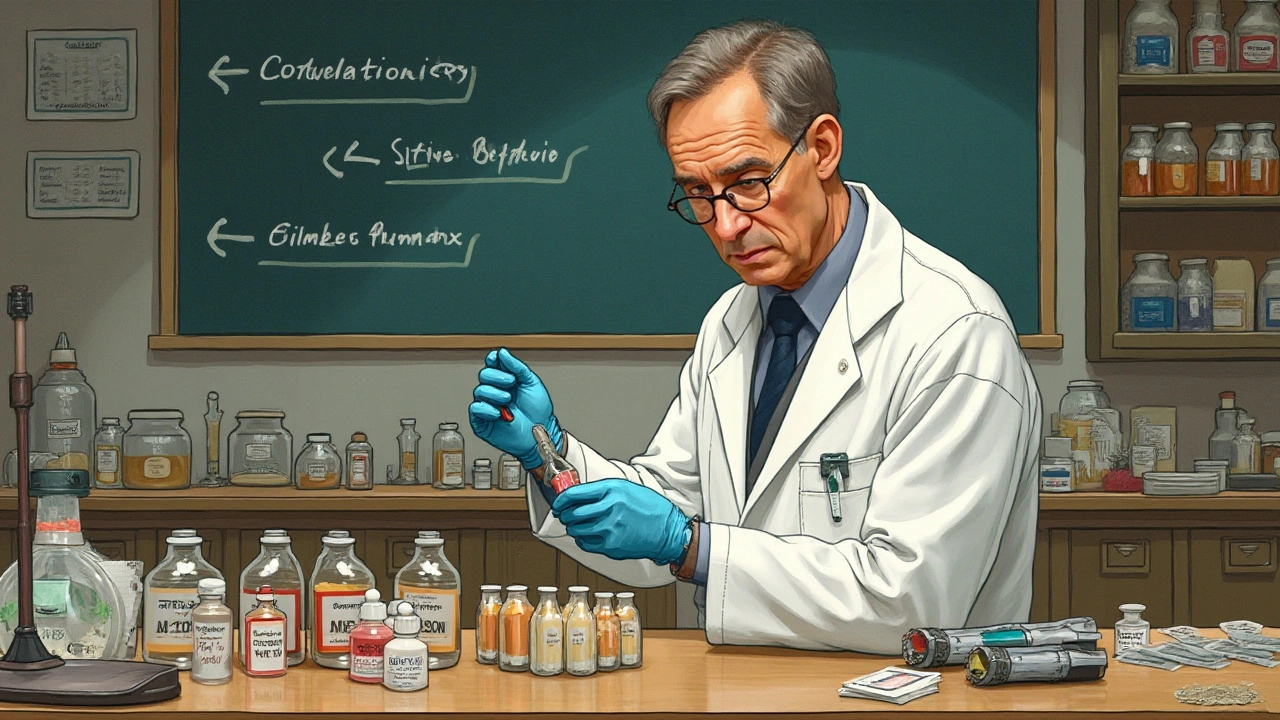Skin health that works: smart fixes you can use today
Red, itchy, or stubborn rashes don’t need to ruin your day. You can often improve skin with a few clear steps: choose the right product, treat infections properly, protect skin from the sun, and avoid long-term steroid misuse. Below are straightforward, useful actions you can take now — plus when to see a doctor.
Everyday skin routine that helps most problems
Start simple. Use a gentle cleanser twice daily — nothing harsh that strips oils. After washing, apply a moisturizer while skin is still damp. Look for ceramides, glycerin, or hyaluronic acid; they lock in moisture and repair the barrier. If acne is your issue, use a product with benzoyl peroxide or a topical retinoid at night. If you have sensitive or eczema-prone skin, skip fragrances and try an emollient cream instead of soap.
Sunscreen is non-negotiable. Broad-spectrum SPF 30 or higher protects against early aging and lowers skin cancer risk. Apply daily, reapply after swimming or heavy sweating, and treat sunscreen like toothpaste — don’t skip it.
When to use medicated treatments and safer alternatives
Topical steroids like triamcinolone help short-term flares, but long-term use can thin skin and cause rebound. Our guide on "Triamcinolone Alternatives" lists seven options—steroid-free creams, calcineurin inhibitors, and practical choices for sensitive skin. For foot fungus, many over-the-counter antifungal creams work, but if the infection won’t clear after a few weeks, you may need prescription pills — see the article on identifying when foot fungus needs stronger treatment.
If you suspect a bacterial infection (spreading redness, warmth, pus), seek medical care. For acne that doesn’t respond to OTC products, ask about prescription topicals or oral options. And for chronic or unexplained rashes, get a skin check; sometimes a patch test or biopsy gives quick answers.
Supplements can help but aren’t magic. Kiwi and certain plant extracts may support skin by supplying vitamins and antioxidants — check our posts on kiwi and tagetes supplements for specifics. Avoid piling on many supplements at once; add one and watch results for 6–8 weeks.
Buying medications online can be safe if you follow simple rules: use reputable pharmacies, check for clear contact info, read privacy and terms pages, and avoid sites that pressure you to buy without a prescription. We have guides on safe online pharmacy shopping and specific medicine buying tips that show what to look for.
Patch test new topical products on the inside of your wrist before full use. If irritation appears, stop immediately. If a product causes severe swelling, breathing trouble, or intense pain, get urgent care.
Want targeted recommendations? Read our pieces on steroid alternatives, antifungal treatment signs, and safe online pharmacies. They give step-by-step choices so you can pick the right path for your skin without guessing.

